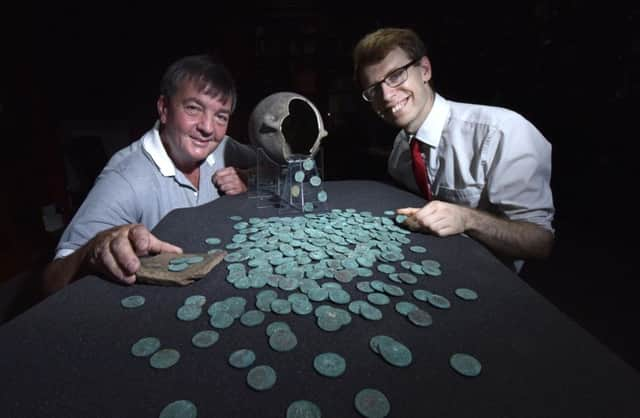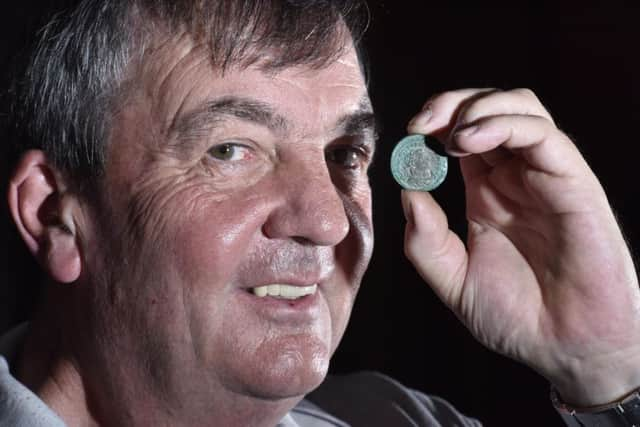Roman hoard discovered by Hartlepool treasure hunter to stay in public hands


Treasure hunter David Blakey, from Clavering, Hartlepool, unearthed a ceramic pot containing more than 1,800 Roman coins dating back to the year 370 AD in a farmer’s field near Scarborough in September 2014.
He described it as “the find of a lifetime”.


Now the hoard is to stay in public collections after an appeal by the Yorkshire Museum, in York, raised £44,000 thanks to donations by hundreds of people from around the world.
Advertisement
Hide AdAdvertisement
Hide AdAndrew Woods, curator of numismatics at the Yorkshire Museum, said: “We are thrilled that so many people have given so generously to allow us to buy this hugely significant find.
“We would like to thank every single person who gave to this appeal and has helped make sure this wonderful collection of coins will stay in Yorkshire and in public collections.
“The hoard is a once in a lifetime find and was buried at a turbulent point in Yorkshire’s history.


“We hope we will now be able to carry out research on the hoard which may reveal more about what was happening in the county at that time and why it was buried where it was.”
Advertisement
Hide AdAdvertisement
Hide AdThe funding included a grant £10,000 from the Arts Council England/Victoria and Albert Museum Purchase Grant Fund and a donation of £9,981 from the American Friends of the Art Fund.
A large portion of the hoard, as well as the ceramic pot, will remain on public display at the Yorkshire Museum until January.
The hoard will then be taken for conservation, with the full hoard being revealed at the museum’s Eboracum Roman Festival next June.
David, a semi-retired lab technician and member of the Dunelm Metal Detecting Club in County Durham which had visited the area where the hoard was found several times before without much success.
Advertisement
Hide AdAdvertisement
Hide AdHe said: “The odds of finding that is probably the same as winning the lottery.
“Two steps to the left or right and I would have missed it.”
Archeologists say the hoard is particularly significant as it sheds light on a period of great uncertainty in the Roman Empire and Yorkshire.
The coins depict several co-emperors who were all jockeying for position.